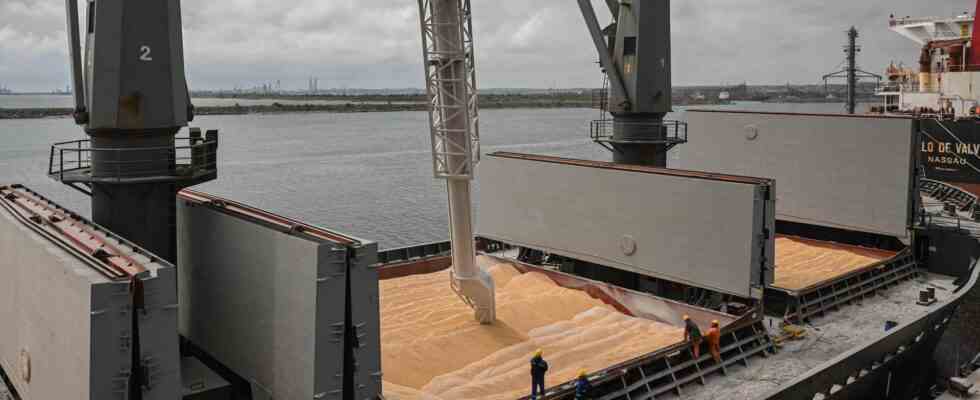Status: 05/13/2022 1:39 p.m
How much responsibility do market speculators bear for skyrocketing prices of agricultural products? Critics speak of “gambling”. But economists also see meaningful effects in how prices are created.
Speculation on food prices is an issue where reactions are emotional. The accusation is directed against hedge funds that bet on rising prices. This would drive up the prices for wheat or corn on the world market and thus exacerbate the famine in poor countries.
But is this connection even true? Yes, says the non-governmental organization Foodwatch. “Because so much money is from pure financial investors, it also influences the real spot prices and the grain trader,” explains Matthias Wolfschmidt, International Strategy Director at Foodwatch. “Think of the big four or five who have huge warehouses of grain.” In their business, the industry giants pay close attention to what is currently being called up on the relevant stock exchanges and orientate themselves on this, according to Wolfschmidt.
“An Invitation to Produce More”
There is nothing bad about doing this at first – on the contrary, says Marcus Schreiber, founder of the business consultancy tws-Partners. He is himself involved in the agricultural sector in Africa. He says: The currently rising prices for agricultural commodities can even mitigate future hunger crises. “If prices now rise on these so-called speculative markets, it is nothing more than an invitation to farmers to produce more.”
In future there will be even more wheat on the world market if the crisis – as currently expected – worsens. Namely in autumn, when the harvest from the Ukraine fails to materialize. According to Schreiber, investors in the agricultural commodity markets are a kind of early warning system. “So that means that if nothing were to happen now, then in six months the prices would really go through the roof,” he explains the principle. “The food speculators, as they continue to be called, are like an early warning system. They issue papers and say: ‘We are ready to buy wheat for a lot more money in six months’.”
Government misconduct also plays a role
This is also a kind of insurance for farmers, who will be paid a guaranteed price for their goods in the future. Economic ethics professor Ingo Pies from the University of Halle-Wittenberg therefore considers the price mechanism of the agricultural commodity markets to be economically sensible. “The price signals prompt us to be frugal today so that we have more grain available tomorrow in an emergency.”
Whether the food then also reaches the poorest countries is another question. According to business ethicist Pies, government misconduct also played a role here in the past. Exporting countries would have artificially reduced their supply, and at the same time customer countries would have bought more than they needed – and thus demand and thus prices – would have been driven up.
Misleading choice of words?
When Foodwatch now speaks of “gambling on agricultural commodity prices”, this is misleading from the point of view of the business ethicist. “The civil society campaigns use gambling metaphors and give the impression that it is morally reprehensible for financial players to become involved in the futures market for agricultural commodities,” criticizes Pies. “Then there is talk of gambling, of casinos, of betting on hunger.”
It should be noted that there is no clear evidence that commodity futures transactions are also driving up food prices. On the other hand, numerous studies show that it is primarily real economic factors that influence prices on the market. A market that is of course also about making money.
Is food speculation really driving up prices?
Bianca von der Au, HR, May 12, 2022 6:44 p.m

